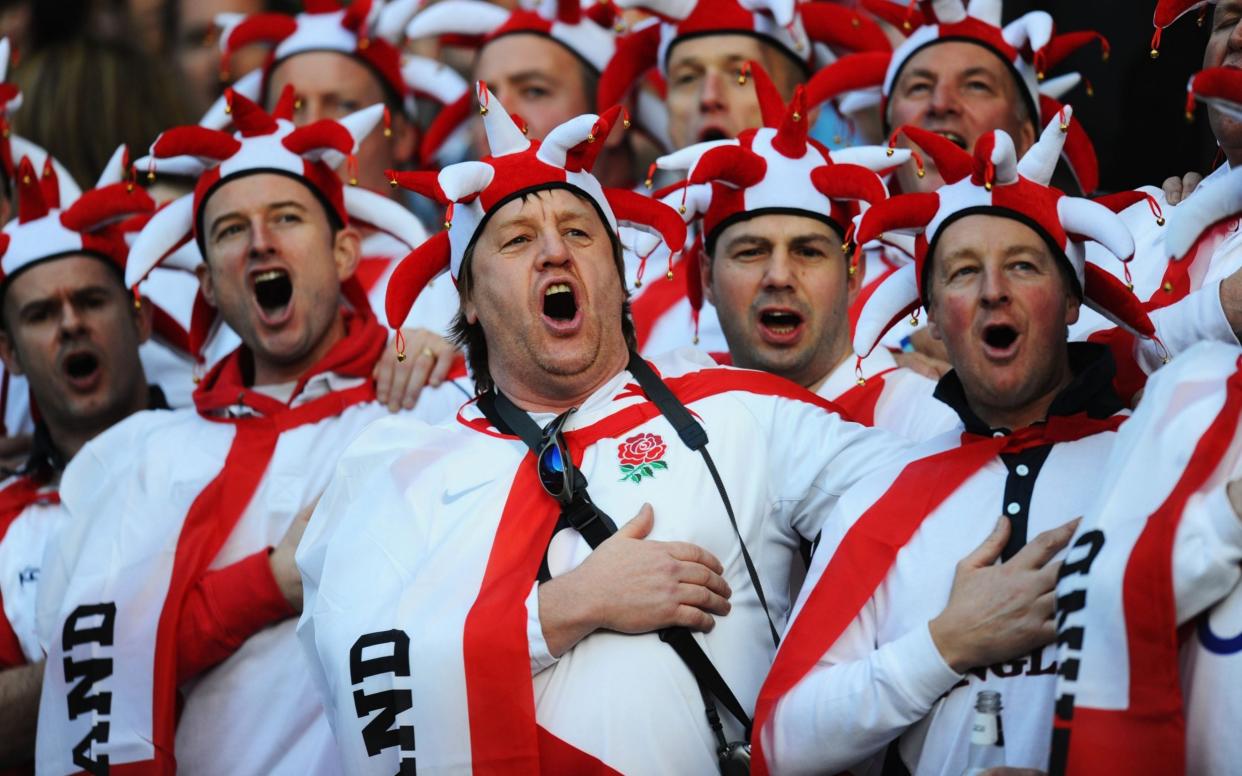'Do not ban Swing Low, Sweet Chariot,' plead South African singers looking to combat racism

The Rugby Football Union has been urged not to ban the swinging of the “Swing Low, Sweet Chariot” at Twickenham by a South African singing duo who are recording a new version of the song to combat racism.
The RFU is currently conducting a review of the use of the song, as well as the use of branding, signage and merchandising featuring its lyrics, after concerns were raised of its slavery origins.
The review, which will be carried out by the RFU’s executive committee, will also involve input from current and former black England players, as well as across both the professional and community departments of the governing body.
Cape Town-based duo Bianca Solomons and Maritza Truter, who have just finished recording a new version of the song to be released next week in response to the racism issues raised by the killing of George Floyd, say any move to ban the song would send the wrong message.
Solomons, a 17-year-old black singer who was adopted by a white woman when she was just four months old, and suffered racial abuse during her childhood, insist that England supporters instead need to be educated about the song and that it should be promulgated as a means of uniting, not dividing people.
“Swing Low, Sweet Chariot is a gospel song,” said Solomons, who has been hailed in South Africa as the best teenage classical singer since Charlotte Church.
“Using this song is a very good opportunity to show people that colour doesn’t matter. Everybody has the same voice. They might not be the same person, they might not have the same personality, you can be a better person.
“I want to inspire people who have come from a very tough background. I was adopted by Ellen, who is white, from the age of four months. I was bullied growing up by every race. I want to be a voice for people who have had a tough time and they can become something if you work for it.
“It is so hard to see black versus white and people being killed. But it still goes on and I want to make a difference with this song.”
That Truter, who has been Solomons’ singing coach for the last five years, is from an Afrikaner background only serves to underscore the symbolism.
“We are trying to do something about racism,” said Truter, who has several hit songs in South Africa. “The England supporters have not been educated about what the song is about really. I don’t want to step on anyone's toes. But the song comes from the black community.
“Bianca is a black girl and I am a white girl and it gives out a positive message about being together instead of being apart. It doesn’t matter what colour your skin is, everyone’s voices sound the same.
“I have done a lot of research into the song and what I have come across is that it is very poignant for the black community. It is a funeral song where they are lifting someone up into the heavens and I hope that comes across.
“We are tearing it down to a very basic song. When Wallis Willis wrote the song, they didn’t have instruments so I wanted to stay true to it.”
Both Solomons and Truter, who were due to be on a choral tour to Manchester before the Covid-19 lockdown, said they would be keen to perform the song at Twickenham in November if it would help educate England supporters about the song’s true meaning.
“I think to show everyone what the song is really about would make a big difference, for black communities everywhere, to show that England supporters are getting to know what the song is really about,” said Truter.
Solomons added: “It would be a brilliant idea just to show people what this song really means. It is about how you treat your people.”


